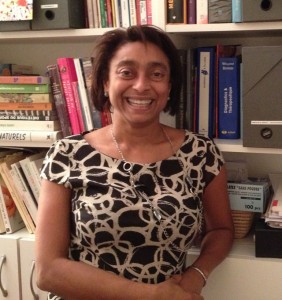
I was surprised recently when a 6th year French medical student told me that there is a difference between a médicin and a docteur : a médecin is able to prescrire but is not qualified whereas a docteur has a Ph.D.
After translating in the field for nearly 40 years and never having witnessed this distinction, I was not convinced and have not found any literature supporting his statement since.
Certainly je vais chez le médecin is exactly the same as je vais chez le docteur. However, you would say bonjour docteur and not bonjour médecin, athough you could say bonjour monsieur le médecin if you wanted to be very polite.
Un médecin généraliste ou just un généraliste is the equivalent of our general practitioner (GP) and definitely qualified!
He was actually speaking about internes who, after 6 years at the faculty of medicine during which they usually do 4 annual 3-month practical periods in a hospital (as externes), spend another 3 years full-time in a hospital before presenting their thesis and becoming a GP or 4 or more years to become a specialist.
A doctor whom you see regularly (what we loosely call my doctor) is docteur or médecin traitant (but not docteur traitant). Qui est votre médecin traitant? Who is your doctor?
When I first arrived in France from Australia, I was surprised to hear people talk about ma gynécologue, mon pédiatre, mon rhumatologue and never about mon docteur, always referred to in any case as le docteur. The system has now changed but until a few years ago anyone could consult a specialist without a referral. You still can but you won’t be reimbursed by social security with the exception of gynaecologists, ophthalmologists, psychiatrists and stomatologists (but only for run-of-the-mill treatment, called acte médical).
My mother-in-law always referred to the doctor as le toubib, borrowed in 1898 from the Algerian word for witchdoctor but which has the same root as medicine. It’s familiar of course and would sound very strange in the mouth of a foreigner!
In English, it is customary to address anyone with a Ph.D. as doctor but docteur is only used to refer to a medical practitioner in France. No distinction is made between a G.P. and a specialist who is also called docteur, unlike the Australian practice of calling a specialist Mr.
When you get higher up on the scale and become a Professor, however, you become le professeur Jacques Dupont, for example.
Among the various specialities, oncologue is used in preference to cancerologue; you go to see a rhumatologue if you’re having back problems , an oto-rhino-laryngologiste, more commonly known as ORL, if you have an ear, nose or throat infection, an angiologue for varicous veins and a pneumologue for lung problems.
The French love using scientific words whenever they can and would consider our more down-to-earth ear, nose and throat specialist, eye specialist and lung specialist almost to be baby talk!



